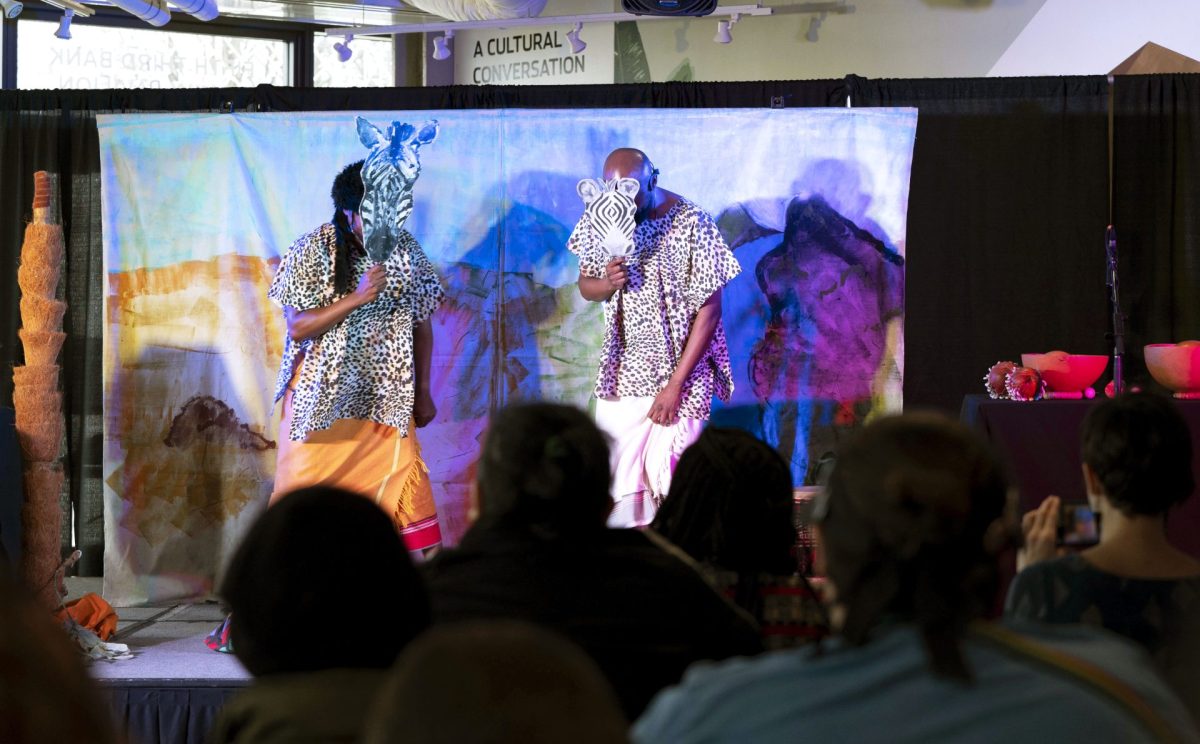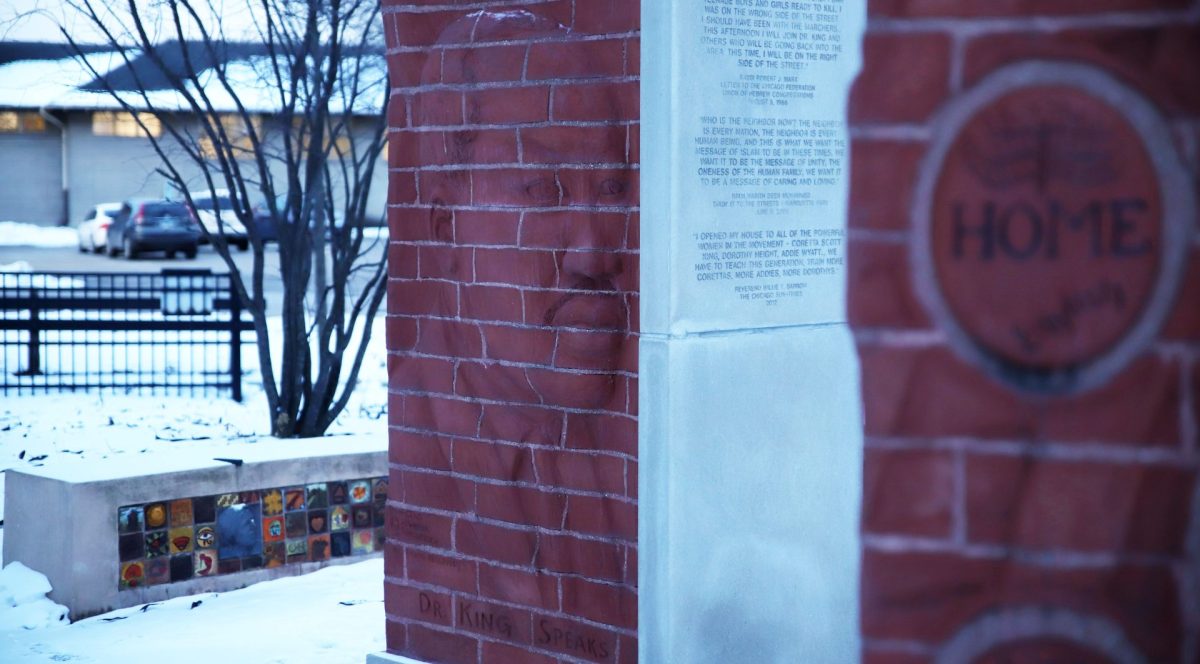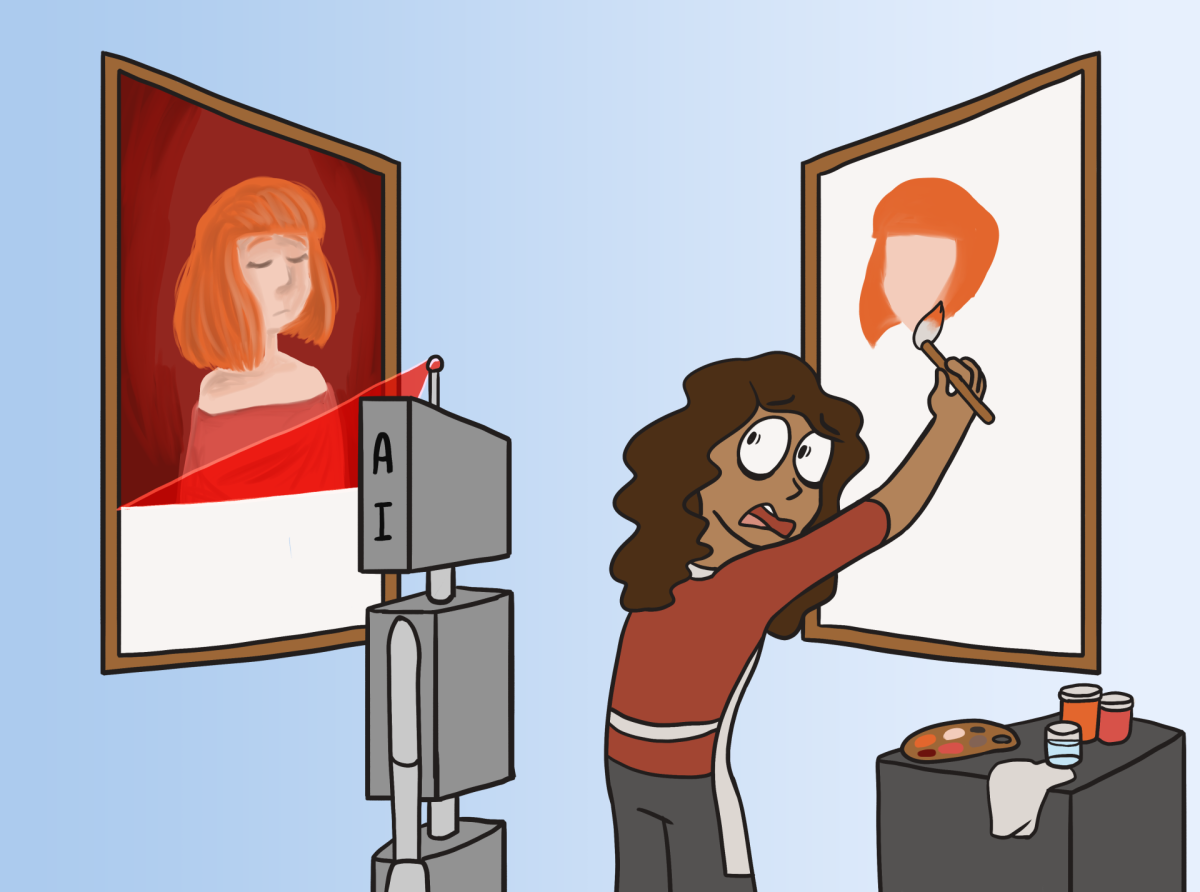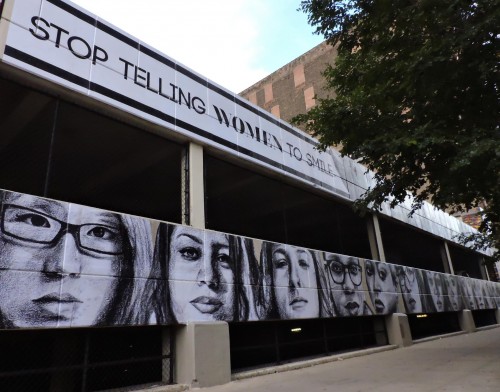
The CTA “L” trains in Chicago have been known for their loud, screeching noises echoing through the streets. They cancel out just about every noise, including the screams of a police officer directed toward Neysa Page-Lieberman.
Page-Lieberman was on her way home from work at Columbia College Chicago, where she is the chair for the Columbia College Wabash Arts Corridor Committee, when she noticed a police officer gesture in a suggestive way to a woman walking by the CTA Roosevelt station. The woman half-smiled at the officer in a panic and shuffled away quickly.
“I didn’t blame her (for smiling),” Page-Lieberman said. “He’s a cop…he’s got a gun,” but Page-Lieberman did blame the police officer.
She felt the need to stick up for the woman because she had recently worked with artist Tatyana Fazlalizadeh on a project called “Stop Telling Women to Smile” that focuses on telling people to stop catcalling women.
Originally from Brooklyn, N.Y., Fazlalizadeh made her way to Chicago because Page-Lieberman contacted her to design a mural on 8th and Wabash Streets in the South Loop. The mural features both the project’s name and women with no facial expression, to show that a woman being told she needs to smile is not acceptable in society.
“I knew that any female walking down the street past this mural was going to feel like she has an advocate and wouldn’t feel alone,” Page-Lieberman said. “They’d feel thankful that someone is out there saying ‘You know? This is not okay. We are not going to deal with this anymore.”
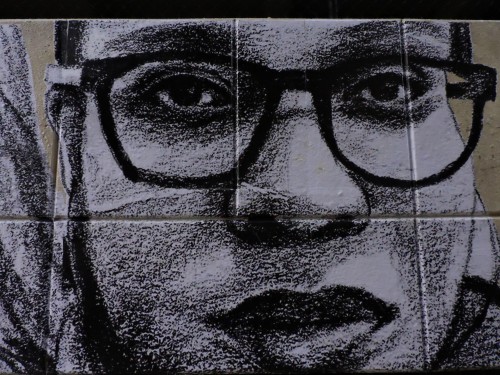
Page-Lieberman also asked Fazlalizadeh to feature some of Columbia College’s students, which she gladly accepted. 20 students volunteered to be a part of the project. Before working on the mural, Fazlalizadeh met with all the students that volunteered, interviewing each one about their experiences with catcalling.
While meeting with the students, Fazlalizadeh taught the girls about microaggressions, which is when someone tells them to smile. It may not seem like they are being assaulted but it might make them really uncomfortable, angry or scared.
“(The girls) were feeling happy to be engaging in a conversation about this because it’s just a grey area where your gut tells you that this is wrong and you shouldn’t have to put up with this,” Page-Lieberman said. “Women often times feel like they can’t fight back, they can’t say leave me alone; they think they just have to smile and keep walking.”
Barbara Schaffer, the Associate Vice President in DePaul’s Office of Institutional Diversity, believes that in order to send a message to people, the “Stop Telling Women to Smile” campaign is a perfect way to do so.
“I like what (Fazlalizadeh) is trying to bring attention to and she’s certainly bringing people’s attention to it. Many people identify with ‘smile and look pretty.’” Schaffer said. “That sort of phrase resonates so I think it’s a very cool campaign.”
Not all women have an easy time responding to their catcallers. According to Page Lieberman, it’s important to always assess the situation before responding.
“If it’s not a dangerous situation, you should say something back,” Page-Lieberman said. “But you should also feel empowered to talk back to somebody, if you’re not endangered. Make the harasser feel uncomfortable. Sometimes harassers apologize.”
Sometimes an apology isn’t enough though. Some women, transgender or gay people face catcalling on a daily basis.
DePaul senior Taylor Bissonette was sitting on the curb as she waited for a friend, right in front of Fazlalizadeh’s mural. Within the five minutes that she sat there, a man approached her, took out his headphones and said, “You are the most adorable person I have ever seen.”
Bissonette says this was not a new situation for her. She is approached almost every week.
“I feel really uncomfortable, and what’s worse is when you’re on the train and it happens and everyone just kind of ignores it and pretends it’s not going on,” Bissonette said.
When Fazlalizadeh had met with Page-Lieberman and the 20 students, something that seemed to be coming up constantly was how often the women would be catcalled.
“(Getting catcalled multiple times) is what everyone was talking about, and some people were even saying ‘everyday of my life’, ‘multiple times a day’, ‘every time I go outside’ and so it was really interesting. It’s kind of like, as a woman, it’s not surprising at all,” Page-Lieberman said. “You’re never going to meet anybody who has no idea what you’re talking about.”
That is, until the world can stop catcalling altogether.



